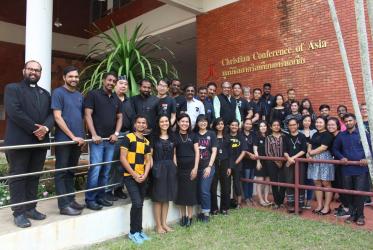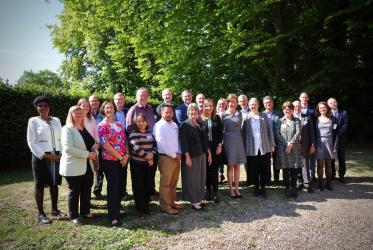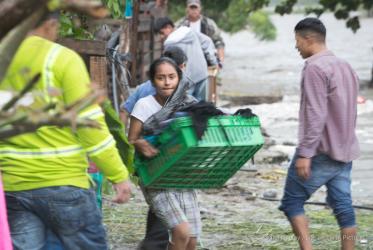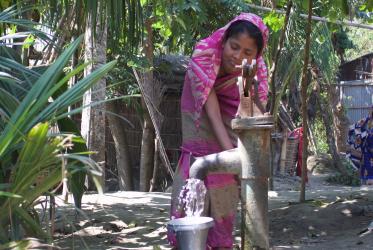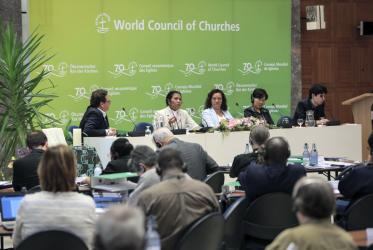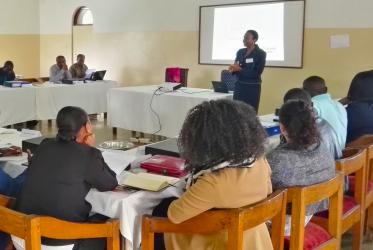Displaying 1 - 20 of 24
WCC Eco-School begins in Crete
15 November 2023
World Social Forum convenes to “express and practice solidarity”
28 January 2021
WCC Eco-School 2020 for Pacific region is further postponed
14 January 2021
Diakonia: “a tool to reach abundance of life”
24 July 2018
African youth takes stand at first ever WCC Eco-School
03 August 2017


